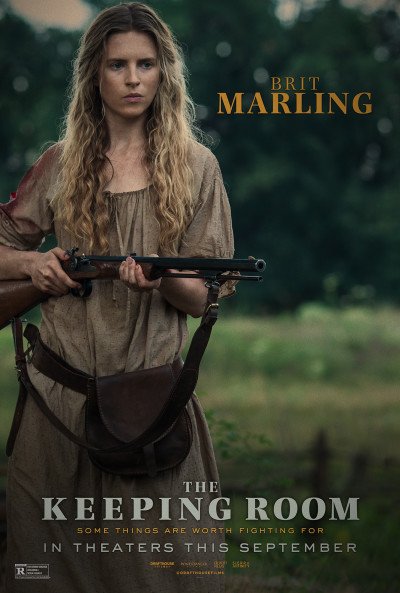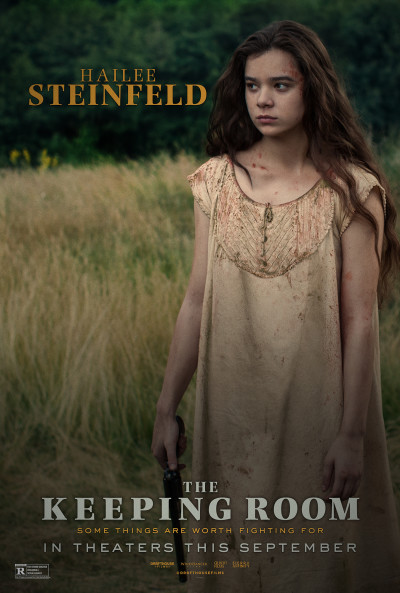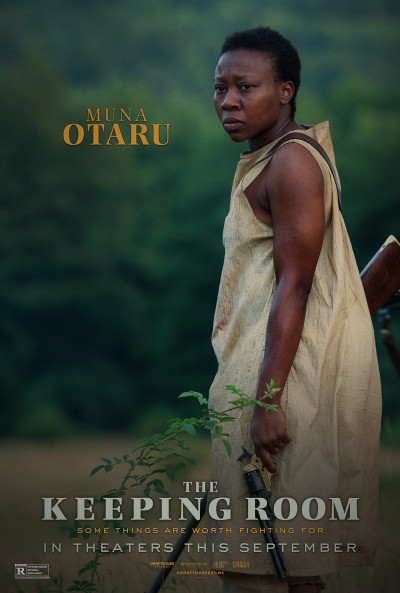★★★
“Not so hellish.”
 This rating is perhaps influenced by my seriously low expectations here. Having seen my share of generic “female ninja” films, all too often they tend to be thinly-disguised exercises in soft-porn. Any action elements are usually secondary, at best. That’s not the case here. Well, at least, not entirely. You’ll not mistake this for Crouching Tiger, yet there has been some thought put into the plot and characters, and this helps elevate proceedings to the level of satisfactorily watchable. Which is, as noted, considerably more than I was anticipating. It comes as a pleasant surprise, especiallyfor a film so obscurist, the IMDb doesn’t recognize it, director Noto’s sole credits being as an assistant in that role. The Amazon Prime synopsis is also from Kunoichi, and so wildly inaccurate in every way.
This rating is perhaps influenced by my seriously low expectations here. Having seen my share of generic “female ninja” films, all too often they tend to be thinly-disguised exercises in soft-porn. Any action elements are usually secondary, at best. That’s not the case here. Well, at least, not entirely. You’ll not mistake this for Crouching Tiger, yet there has been some thought put into the plot and characters, and this helps elevate proceedings to the level of satisfactorily watchable. Which is, as noted, considerably more than I was anticipating. It comes as a pleasant surprise, especiallyfor a film so obscurist, the IMDb doesn’t recognize it, director Noto’s sole credits being as an assistant in that role. The Amazon Prime synopsis is also from Kunoichi, and so wildly inaccurate in every way.
The actual story present concerns Benimaru (Asami), a member of a clan of ninjas, who has been tasked with assassinating a feudal lord and stealing a scroll containing the location of his treasure. While she succeeds, this is only the start of her issues. The lord’s family sends out hunters after her; various independent parties are after the scroll as well; and even her own clan seek to dispose of her. For, as we eventually find out, Benimaru only accepted the mission to try and save her girlfriend, Kikyo (Ayana), from execution, after they were caught in flagrante. When they meet up, a happy ending seems possible – yet is far from inevitable.
We’ve covered a number of Asami films before, the most notable ones being Gun Woman, The Machine Girl and the Lust of the Dead trilogy, and she provides good value again here. She’s perhaps the modern equivalent of someone like Meiko Kaji, with charisma that elevates almost anything she’s in. There is genuine acting to be seen, such as in her scenes with Kikyo and she also is capable of doing a bit more than simply waving a sword about. It helps that Noto, whether by accident or design, keeps the camera relatively static. The plot provides a constant stream of obstacles to be overcome, such as the brother and sister bounty-hunters. Perhaps there just wasn’t any chance for more than the couple of sexy scenes (one with the lord, the other with her girlfriend) which get squeezed in to the 70-minute running time.
It’s to the film’s credit that it would work as a low-budget actioner, even without the nudity at all. Admittedly, the production values extend to little more than a few costumes, with the bulk of the film spent either running around a forest, or sitting around a cave. Yet the cast and crew manage to keep it more interesting than that might sound, with the heroine quickly realizing that few people are what they seem. Mind you, she gives as good as she gets on that front, with her ninja talents including voice impersonation. And, it seems, hiding underneath an extremely large straw hat. Who knew?
Dir: Hidemi Noto
Star: Asami, Rei Ayana, Takashi Irie, Yoshihiro Sato





 Regardless of its flaws, this does at least show that comic-book adaptations needn’t involve superheroes and Thanos snaps. This is instead a crime story, beginning towards the end of the seventies in Hell’s Kitchen, a working-class area of New York. Following a failed armed robbery, the husbands of Kathy (McCarthy), Ruby (Haddish) and Claire (Moss) are sent to jail, leaving the wives to fend for themselves. To make ends meet, the trio begin to move in on the territory of local boss Little Jackie, who has been taking money from local businesses, without delivering the promised protection. When Jackie goes after them, he is killed by the women’s ally, Gabriel (Gleeson), who begins a relationship with Claire. But the husbands’ return to Hell’s Kitchen looms on the horizon, as the women’s growing power also brings them unwelcome attention – both from the authorities and the Mafia who dominate the city.
Regardless of its flaws, this does at least show that comic-book adaptations needn’t involve superheroes and Thanos snaps. This is instead a crime story, beginning towards the end of the seventies in Hell’s Kitchen, a working-class area of New York. Following a failed armed robbery, the husbands of Kathy (McCarthy), Ruby (Haddish) and Claire (Moss) are sent to jail, leaving the wives to fend for themselves. To make ends meet, the trio begin to move in on the territory of local boss Little Jackie, who has been taking money from local businesses, without delivering the promised protection. When Jackie goes after them, he is killed by the women’s ally, Gabriel (Gleeson), who begins a relationship with Claire. But the husbands’ return to Hell’s Kitchen looms on the horizon, as the women’s growing power also brings them unwelcome attention – both from the authorities and the Mafia who dominate the city.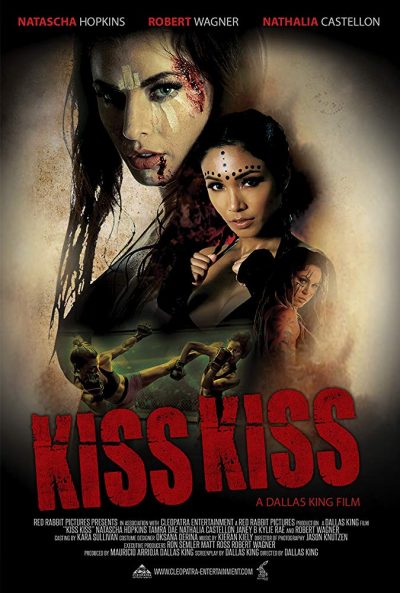 Four exotic dancers go on a trip to vineyard, courtesy of a customer at their club. However, they get more than they bargained for, falling unconscious and waking up to find themselves test subject in a scientific experiment run by Gibson (Wagner – no, not that one). He is attempting to convince the military-industrial complex to invest in his project to create “super soldiers”. To this end, he has a serum which vastly enhances both aggression and compliance, and has invited Senator Graham (Farino) to witness a test, under carefully controlled laboratory conditions. Oh, who am I trying to kid: he actually just shoots up the strippers with the serum and makes them fight to their deaths. In sports bikinis. And face-paint. In subdued yet artistic lighting. Because science! And that’s how government funding works!
Four exotic dancers go on a trip to vineyard, courtesy of a customer at their club. However, they get more than they bargained for, falling unconscious and waking up to find themselves test subject in a scientific experiment run by Gibson (Wagner – no, not that one). He is attempting to convince the military-industrial complex to invest in his project to create “super soldiers”. To this end, he has a serum which vastly enhances both aggression and compliance, and has invited Senator Graham (Farino) to witness a test, under carefully controlled laboratory conditions. Oh, who am I trying to kid: he actually just shoots up the strippers with the serum and makes them fight to their deaths. In sports bikinis. And face-paint. In subdued yet artistic lighting. Because science! And that’s how government funding works! Joan Butler (Bernadette) is an enforcer for mob boss Frank (Foster), with a zero-tolerance policy for those who disrespect her – whether they are on her side or not. When this eventually causes some of her gang to turn on Joan, she’s brutally beaten to a pulp, and apparently killed. However, she rises from the dead, now a figure who lives in the darkness, and one who has acquired the power to manipulate shadows. She sets about her mission of revenge against Frank and those who killed her. This is much to the distress of her on/off boyfriend Anthony (Celigo), a social worker. But her feelings for him and desire to protect the unfortunates with whom he works, puts them all at risk, when Frank realizes they represent her weak spot.
Joan Butler (Bernadette) is an enforcer for mob boss Frank (Foster), with a zero-tolerance policy for those who disrespect her – whether they are on her side or not. When this eventually causes some of her gang to turn on Joan, she’s brutally beaten to a pulp, and apparently killed. However, she rises from the dead, now a figure who lives in the darkness, and one who has acquired the power to manipulate shadows. She sets about her mission of revenge against Frank and those who killed her. This is much to the distress of her on/off boyfriend Anthony (Celigo), a social worker. But her feelings for him and desire to protect the unfortunates with whom he works, puts them all at risk, when Frank realizes they represent her weak spot.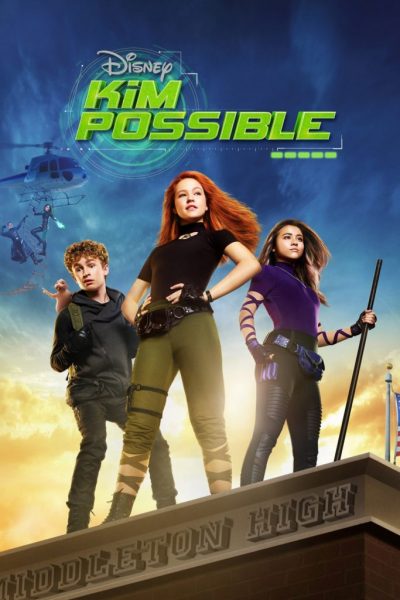 The new trend for Disney appears to be, live-action version of their beloved classic movies. This year alone, we can expect to see Dumbo, Aladdin and The Lion King, with Mulan to follow in 2020. A possible stalking horse for this was the live-action version of (somewhat) beloved TV series, Kim Possible, which ran for four seasons from 2002-07. It was pretty good, likely peaking with TV movie
The new trend for Disney appears to be, live-action version of their beloved classic movies. This year alone, we can expect to see Dumbo, Aladdin and The Lion King, with Mulan to follow in 2020. A possible stalking horse for this was the live-action version of (somewhat) beloved TV series, Kim Possible, which ran for four seasons from 2002-07. It was pretty good, likely peaking with TV movie 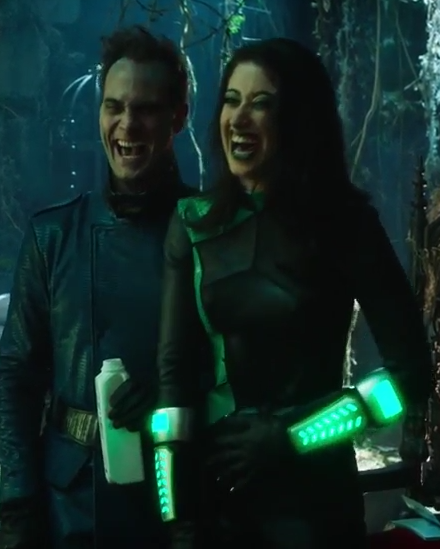 Instead, however, there’s a really horrible plot about Kim befriending Athena (Wilson), another new student. I’m sorry, when did Kim Possible become a relationship drama? Jealousy of Athena – despite her being super-annoying – causes Kim to suffer self-doubt, and fail when she is needed most… blah blah blah. Awful scripting, the portrayal of their relationship is sub-juvenile pap, which I’m sure would turn the stomach of any actual high-schooler. Worse, it goes beyond “flawed”, making the heroine weak and no longer heroic. And what’s with Kim being obsessed with joining the school’s soccer team? She was a
Instead, however, there’s a really horrible plot about Kim befriending Athena (Wilson), another new student. I’m sorry, when did Kim Possible become a relationship drama? Jealousy of Athena – despite her being super-annoying – causes Kim to suffer self-doubt, and fail when she is needed most… blah blah blah. Awful scripting, the portrayal of their relationship is sub-juvenile pap, which I’m sure would turn the stomach of any actual high-schooler. Worse, it goes beyond “flawed”, making the heroine weak and no longer heroic. And what’s with Kim being obsessed with joining the school’s soccer team? She was a 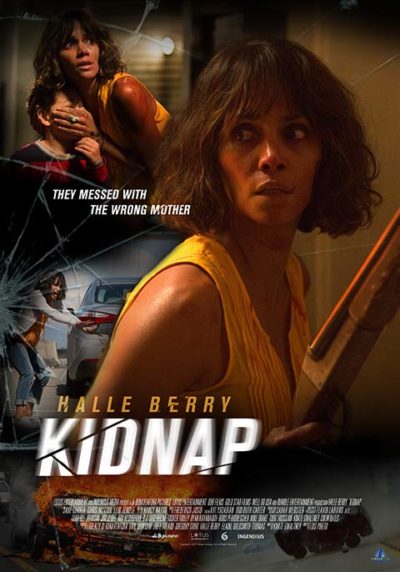 Oh, how the mighty have fallen. And considering Halle Berry’s last appearance on this site was for Catwoman, that’s saying something. This is so dumb, I genuinely felt I could feel my IQ slowly sliding away as I watched the movie. Even now, simply remembering it has me feeling more stupider by the sentence. If this review ends up sounding like Beavis & Butthead by the end, that will be why. Its plot is beyond simplistic. Karla Dixon (Berry) has her child abducted from a New Orleans park while she’s on the phone, by husband and wife kidnappers Margo (McGinn) and Terry (Temple). Losing her cell in the process, she takes off after them in hot pursuit, and nothing will get in her way for the next 80-odd minutes.
Oh, how the mighty have fallen. And considering Halle Berry’s last appearance on this site was for Catwoman, that’s saying something. This is so dumb, I genuinely felt I could feel my IQ slowly sliding away as I watched the movie. Even now, simply remembering it has me feeling more stupider by the sentence. If this review ends up sounding like Beavis & Butthead by the end, that will be why. Its plot is beyond simplistic. Karla Dixon (Berry) has her child abducted from a New Orleans park while she’s on the phone, by husband and wife kidnappers Margo (McGinn) and Terry (Temple). Losing her cell in the process, she takes off after them in hot pursuit, and nothing will get in her way for the next 80-odd minutes. You could call this a foul-mouthed, borderline misogynist, zero budget piece of trash, with no coherent plot, where it seems every other word is a F-bomb or C-missile, and most of the lines are not so much spoken, as yelled. I wouldn’t argue with such an assessment, and understand perfectly why it is rated 1.4 on IMDb. And, yet… It has a relentless and manic energy which makes Crank look like a Merchant-Ivory costume drama. Put another way: unlike the overlong Rogue One, I did not fall asleep here, and it will likely stick in my mind longer than the three other, far more polished productions, which I watched the same day. Probably because, unlike this, they did not have a topless little person being tossed off a roof.
You could call this a foul-mouthed, borderline misogynist, zero budget piece of trash, with no coherent plot, where it seems every other word is a F-bomb or C-missile, and most of the lines are not so much spoken, as yelled. I wouldn’t argue with such an assessment, and understand perfectly why it is rated 1.4 on IMDb. And, yet… It has a relentless and manic energy which makes Crank look like a Merchant-Ivory costume drama. Put another way: unlike the overlong Rogue One, I did not fall asleep here, and it will likely stick in my mind longer than the three other, far more polished productions, which I watched the same day. Probably because, unlike this, they did not have a topless little person being tossed off a roof. After I watched the first episode of this show, I was sure it was a delicious parody of anime shows, particular the “super-powered high-school” genre. It seemed to be taking the concepts of shows such as Sailor Moon, say, and ramping everything up to 11. The violence, in particular, is somewhere beyond Dragon Ball Z in terms of excess, except with copious additional amounts of arterial spray – though people survive far beyond the point at which any normal person would be a desiccated husk. I mean, just look at that heroine’s outfit on the right. They cannot be serious, can they? But the longer this went on… the less sure I was whether it
After I watched the first episode of this show, I was sure it was a delicious parody of anime shows, particular the “super-powered high-school” genre. It seemed to be taking the concepts of shows such as Sailor Moon, say, and ramping everything up to 11. The violence, in particular, is somewhere beyond Dragon Ball Z in terms of excess, except with copious additional amounts of arterial spray – though people survive far beyond the point at which any normal person would be a desiccated husk. I mean, just look at that heroine’s outfit on the right. They cannot be serious, can they? But the longer this went on… the less sure I was whether it 
